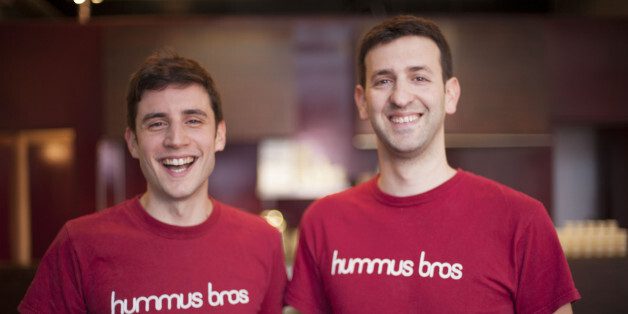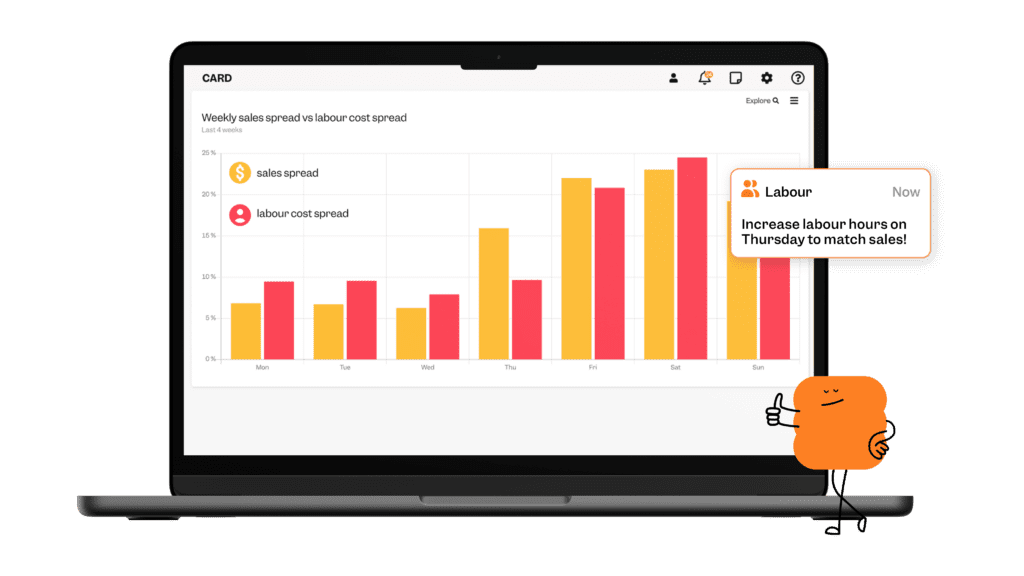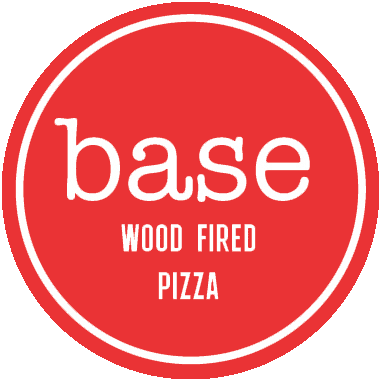“We test things, we try things, and we see what works and what doesn’t work. And even now, if I think about this inflation, which we haven’t seen in like 40 years at this level, no one in living memory who was working at the moment saw what this was like. There’s no answer. The only answer is to really experiment, learn, see, be ready to change, and be comfortable with failure. If it works, great, and if it doesn’t, you move on.”
Christian Mouysset
We are back with our BlogCast, our newest series here on Bizimply’s blog!
🎧 A series in which we revisit Bizimply’s favourite episodes from The Hospitality Mavericks Podcast, hosted by Michael Tingsager. (Don’t forget to check out our first BlogCast on Visioning for Business!)
On this BlogCast, we will get to know a little bit more about how to get real-time insights with data, revisiting the story behind Tenzo Restaurant PerformanceOps throughout the great conversation with Christian Mouysset, one of the Co-Founders of the software that is revolutionising restaurant operations.
Christian’s insights on business intelligence, data for restaurants, and the combination of machine learning and the gut feeling only humans have can help restaurateurs. You can get a better understanding of what you need to order and produce, so your business does not waste as much.
A trending and exciting view of what AI can bring to the Hospitality industry
The restaurant management and sales forecasting app it’s one of Bizimply’s Partners and works with leading brands such as The Breakfast Club, Pizza Pilgrims, and Nando’s.
Main Highlights:
- The value of data in the hospitality industry;
- Using customer data to make informed decisions;
- Using data analysis to improve customer experiences and operational efficiency;
- Machine learning and Restaurants.
Journey into Hospitality: From Computer Science to the Restaurant Industry
Christian shares how running a restaurant makes him realise that better decision making starts with data.
“I originally studied computer science and then went to set up a chain of restaurants—not the most obvious career path. “Computer Scientist turns restaurateur ”. I set up a chain of restaurants called “Hermes Brothers” in London and grew that to six locations. We were doing pop-ups in lots of different corporate restaurants, like Goldman Sachs and JP Morgan’s canteens. We would just go and set up a pop-up and serve great food.”
“Along that journey, I kind of discovered two things. One is that running a restaurant is really hard, right? From the outside, it’s not that complicated. Prepare some food. Bring it to the table. People love it. They tell their friends. Repeat. Right? It seems so simple. Having seen it, There is a lot of operational complexity; there are a lot of moving parts. There are a lot of big teams, and you are handling produce that has a finite shelf life, right? So all these things make it actually very complex to run effectively.”

“And the second learning I had was just how hard it was for me to really get the information—the data—I needed in my hands. But more importantly, in my General Manager’s hands. The managers in the restaurants.”
“The ones that were deciding: how much staff to have, how much inventory to have, and how to motivate the team to sell. I wanted to get them to have data in their hands so that they could make those decisions more optimally. Restaurants are margin businesses. You need to be tweaking and running them as efficiently as possible to really be successful. And with that disconnection between the data, which was typically sitting at the head office, The GMs in the restaurant didn’t have that transparency and visibility in the business in real time. Just meant that they weren’t able to make the best decisions. And that is why I set up Tenzo.”
“What does Tenzo do? We basically connect to various data sources. Your POS, your Till to get your sales data, your labour, and your inventory. Bring all that data together to make it accessible really easily, really simply. On mobile in real-time in the hands of the GMs. To help them make better decisions.”
Big Data is everywhere, and Hospitality is no different.
Mouysset then explains that there is so much data in hospitality that we need to find solutions that curate it more than anything.
“Totally agree. I mean, in our world, there’s so much data now, right? And often we have these really interesting conversations with our customers: ‘Oh, but there’s all this interesting data, that interesting data.’ We want to bring it all together and make better decisions.”
“At the end of the day, when I think about our users, they’re mostly general managers or area managers and also head office—the whole operational part of the business. And a lot of that ops team is not actually sitting in front of a computer looking through data, right? They are generally on the move. They need to be able to see things quickly on their phone to make decisions at the moment.”
“Actually, for them, less is more. They can’t pull an infinite amount of levers day-to-day. In my view, there are three levers that they can really pull. They can try to increase their sales by motivating their team to upsell a dish or a drink to a customer that walks in. They can maintain labour; they can make sure that they have the right amount of labour at the right time, less in the quiet times and more in the busy times. Then, with waste, how much inventory is there? And those are your three levers. Actually giving them more than that is difficult; it confuses them.”
“You can’t change your rent. You can’t really change your marketing budget. That’s more strategic. So, actually limiting it to what they can really have input on is really important.”
Tenzo’s Co-Founder shows that the mission of Tenzo is exactly to be able to empower managers with data.
“Empower business operations. Use data to accelerate business performance. Thinking about the operators. To really give them the data they need. To get the visit to run as efficiently as possible, and it was like that.”
“Our mission is really to empower restaurant operators to use their data to accelerate business performance. So really, it’s thinking about the operators. saying, like the GMs, the area managers, and the director of operations, to really give them the data they need to get the business to run as efficiently as possible.”
The software’s purpose, he continues, is to actually affect the restaurant industry and shape a better future for the sector.
“What success looks like to me is a more sustainable and successful restaurant industry, right? And what does that mean? The two things I saw when I ran restaurants are really why I want Tenzo to be successful. One, we were wasting so much food as a business. No restaurant operator goes out there wanting to waste this amount of food.”
“But the reality is that you can’t. There’s a lot of volatility in sales, and therefore you often overproduce or underproduce, and that’s just really upsetting.”
“Someone actually put it really well for me the other day. She said, ‘I used to waste in a restaurant the amount of food equivalent to the amount I’ve wasted at home over a whole year’. Because in the restaurant they were serving hundreds of people. The amount of food that would be thrown was equivalent to hundreds of days at home.”
“Number two is that there’s a lot of stress in the industry because you’re running this and you need to run that shape. There’s a lot of pressure if you put in too much stuff. You’ll be told by your management that you need to reduce If you don’t put in enough, then your customers are upset. And your team is upset because they’re running around. So, there’s a lot of stress, and really what I want to do with Tenzo is address both of those problems.”
“Help restaurants get a better view as to what they need to produce and make sure they order the right amount of food and don’t waste. And to give visibility in the business and how to run it to make sure that they’re not stressed in running the day-to-day.”
The use of business intelligence by the restaurant industry: How to get insights from data?
How can we make a better industry? How good are we at using the data we have? Have we become better?
“That’s a really interesting question. Because when I think about how well the industry uses the data, I think there are several steps along the way. One is that you need to make sure you’re collecting all this data. The second one is that you need to be able to analyse that data for insights. So that you’re able to know that just getting the raw data is not really helpful. You also need to be able to use that data to predict what’s going to happen, because it’s not just about looking backwards. It’s looking forwards. And then, finally, you need to be able to know how to act on that data, right? So if I think about that framework in terms of collecting, analysing, predicting, and acting,
“I think on the collection (of data) you’re right. The industry has gotten a lot better at this, and I think the pandemic was a huge driver of this. During the pandemic, people couldn’t just walk off the street into a restaurant; they had to order by click and collect, by delivery, or whatever it was. So, therefore, there were more tools and technology that were put in place to collect more data, ultimately effectively serving the customer. I think we’re seeing an incredible improvement from that side.”
“And what’s happening is that restaurants, like any other industry, are realising that they have to look at their data, and they have to be able to run their businesses more efficiently because the market is effective. There’s more and more pressure. And that’s really pushing restaurants to actually get a lot better at doing the analysis. Predicting what’s going to happen next and understanding that they need to be able to do that in real-time Because this is where I think the industry really has the biggest leap to make a stall. Is the only way to really act. The data is for it to be in real-time.”

“Because if you think about it, let’s say you told your team at lunch, ‘Hey, Let’s all push the Mint and Ginger lemonade today. It’s a nice, warm day. Let’s all push them into the Mint and Ginger and try to upsell them. If you don’t, after lunch say, ‘Team, we sold that to 70% of all the people who walked in’. That’s a great result! What questions did we ask? How did we do that? What can we learn if you can’t do that there and that?’ You can lose that opportunity to improve. Because if you do it a week later, everyone will have forgotten what they did that specific day. So that’s the bit where I think the rubber really meets the road. They’re collecting. Well, they’re starting to analyse and predict a lot better. But now it is really getting real-time on mobile in the hands of these GMS that really makes all the difference here in terms of getting the best performance out of the business.”
He then explains the significance of tailoring how data is displayed to each user.
“You can’t show a GM the same data you’re showing an area manager. The same data you’re showing a head office user In terms of whether the GM is just seeing their restaurant. The manager sees their region. And the head office is the whole business. Not only that. But also the way you display it. In a more visual, intuitive, and easy-to-understand way to the GM. And maybe more complex at the head office. But you really do think about how you tailor that use case to really be able to make it very clear. What is the action the person should take based on the data that’s coming out of that?”
AI and Restaurant Management
Machine learning for restaurants is insignificant if there is no human eye on it.
“If I talk about controlling labour costs, one thing we do with a lot of our customers is use machine learning to help predict future sales using historical weather information and events. So, you know, Mother’s Day, Christmas, Easter, Etc. What we do is propose this number to the general manager, and we let them change it up or down. Why do we do this? Because I’m a firm believer that to get the best answer, you need AI and humans. And why is that? Because there’s no way the machine learning algorithm will have all the information.
“If there are roadworks outside the front door, it won’t know that. And, therefore, if the GM isn’t able to change that, they’ll lose trust in it. By really getting them to engage with it. You actually get the best possible answer. What do we do once we have that answer? We then compare it to what they’ve planned for labour, and then we’re able to say, ‘Hey! You’ve planned X for next week, and this is what you are forecasting in terms of sales’. We can alert them before the week starts to help them understand.”
Intelligent decisions come from human touch, but AI can accelerate lots of learning and data points.
“One hundred percent. And I think there are lots of examples of this, fundamentally. People go out to restaurants because of the hospitality. It’s not just about the great food. It’s about the atmosphere. It’s about the teams. And often, when we have a great experience from a service point of view. That’s something. That’s memorable. And actually, our mission is to help restaurants not have to spend time on the data, copying and pasting lots of data from Excel.”
“Humans get better answers. And then the human has to take it to the end. And that, for example, let’s say, is not just on the forecasting. But let’s say you have to schedule a team. When putting the right people to work at the right time, you also have to think about who works well together. I remember when I was doing the schedules, I’d be like, I know she works well with him, and he likes working with her, and you can create a really great team. It’s not just about putting people randomly. You need to really think about it. And that’s where I think the AI can help by saying, “Hey, I think you need this many people.” But then, really, the human input of saying, “I know these people work well together”. So it’s really about bringing them both together. And that’s how you get the best result.”
“What was really incredible to see during the pandemic—and even afterwards—is how much restaurateurs adapted, right? They were like, I remember, Leon during the pandemic was like, straight away—within a week— They’re like, “We’re just going to do deliveries”. At that time, everyone was kind of like, What’s going on? Like, what are we doing? But they just jumped in and were like, We’re figuring out how we’re going to do it. And I think we saw that a lot during the whole pandemic when they started doing deliveries. And then they started doing cook-at-home meals and the industry has continued to evolve and adapt both in terms of offerings, people, and technology. ”
“All of these pieces have been evolving. And that’s why I’m so positive about my outlook. Because I think, although there’s been a lot of disruption, this is creating a lot of opportunities, and a lot of new models and ways of working have come out of it. And that’s why I think it will be incredible. It feels uncertain in certain ways. But I think there’s a lot. There’s huge potential.”
Community of restauranteur
The discussion concludes with an overview of why hospitality is important. Why make such a large investment in this sector?
“Because I don’t think we talked about the why of going into the hospitality industry. Maybe as much. And I think we touched a bit on it.
“First of all, (due) to great food. I love great food. That’s where it all starts. But it’s also the community. I remember when we ran Hummus Brothers one day, the roof caved in. Okay. Thankfully, it was before it was open. Thankfully, no one got hurt. But I remember that the whole freaking ceiling just caved in. And we had just one location at the time; we were building our second location. So we were like, We had these two building sites that we had at the same time. And the support from the community was incredible because we had neighbouring restaurants. Who would ‘listen, if you needed a space to work in while you were rebuilding? If you need us to help your team if they don’t have work, They were just basically wanting to help in any way.
“And that I felt was just so amazing to be part of a community. where, although we were competing day-to-day, there was still like, ‘Hey, someone’s in need. We’re going to help them out’. And I think that’s just an incredible feeling to be in that industry. ”
Because we are aware of how critical it is for our customers to be able to make better and quicker decisions, Bizimply is proud to be a partner of Tenzo. The hospitality industry, like any other, is inundated with data, and Bizimply and Tenzo recognise the need to curate and streamline this data to make it meaningful and actionable.
Do you like our content? Share with a colleague!





